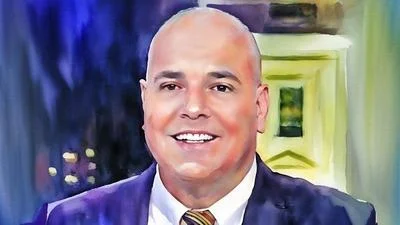In a nation built on innovation and self-reliance, America’s health care system should be oriented to support entrepreneurs taking the biggest personal and financial risks. Small business owners don’t have the safety nets of large corporations, so a single illness can derail livelihoods and stall economic growth.
For John Stanford, accessible and affordable health care is an economic backbone for the country’s most vital job creators.
Stanford’s firm, Prism Group, advocates for policies that empower startups and small business growth. “My entire career is making America entrepreneurial,” he says.
He argues that small businesses are uniquely vulnerable when owners and employees get sick. “If America’s businesses are unhealthy and America’s workers are unhealthy, there is no chance that small businesses can continue to thrive,” he says.
He sees a direct link between physical wellness and economic output. “Preventative health care becomes your insurance,” he says. "Many small businesses can’t afford high-cost insurance plans.”
Lacking bargaining power, they rely on flu shots and telemedicine as accessible ways to avoid widespread workplace illness. “You can’t afford for the flu to come through,” Stanford says.
He points out the seasonal nature of many small businesses, especially retailers and e-commerce shops, where “half of all revenue comes in the holiday season.” That’s also the time when health risks rise—flu, pneumonia, and Covid among them. Entrepreneurs can’t afford to be out for 6-8 weeks. “That’s a gut shot,” he says.
Part of the problem, according to Stanford, is insurance. “There’s bipartisan agreement that health care is broken for small businesses,” he says.
While the Affordable Care Act aimed to improve access, small businesses found tax credits too complicated and exchanges never attracted the needed risk pools. “It remains hard for small businesses to offer competitive, cost-effective and quality insurance to their employees and to themselves,” he says.
To bridge the gap, small businesses embrace innovations like telemedicine and over-the-counter treatments. “Small business owners love telemedicine because instead of having a doctor’s appointment, lose an hour or more of traffic time… I see the doctor, make sure everything’s okay.” He also applauds the trend toward oral therapeutics that keep people out of hospitals.
He also refers to the value of vaccines as a crucial tool, and points to the recent CDC decision to approve two pneumonia vaccines for those 50 years and older. He calls this demographic “non-core entrepreneurs”—people leaving corporate careers to start businesses. “They’ve taken this huge life risk,” he says. “They can’t afford to get sick.”
Giving this group options to reduce downtime is vital, and Stanford praises how the CDC didn’t “play politics” by choosing one vaccine over the other. “It is a choice,” he says. “And if you want to choose to prevent 6–8 weeks out that pneumonia could cause, here’s an option for you.”
Stanford sees health policy as a potentially unifying issue. “It’s not a red or blue issue,” he says. “Small business revenues and their ability to keep their lights on are tied to people being present, and people aren’t present if they’re sick.”
Stanford acknowledges that politicians often struggle to communicate effectively about what’s actually needed in health care. “The left seems blind to arguments for a more efficient, cost-effective system,” he says. “And on the right, it’s all cost-effective efficiency—but where’s the compassion?”
In his view, the solution lies in embracing innovation and leveling the playing field so small businesses can compete with larger firms. “A simple and effective health care system is a great leveler,” he says.
Stanford notes that trust is a major advantage for small businesses. “The most trusted institution in the United States is small businesses,” he says. That creates an opportunity for more effective public health messaging through communities of entrepreneurs.
“We’ve got a long way to go—probably a decade to figure out a health care market that makes sense for small businesses,” he says. “But in the meantime, everything we can do preventatively, that’s a win for small businesses.”









